The Austrian School is a heterodox school of economic thought that advocates strict adherence to methodological individualism, the concept that social phenomena result exclusively from the motivations and actions of individuals. Austrian school theorists hold that economic theory should be exclusively derived from basic principles of human action.

Murray Newton Rothbard was an American economist of the Austrian School, economic historian, political theorist, and activist. Rothbard was a central figure in the 20th-century American libertarian movement and a founder and leading theoretician of anarcho-capitalism. He wrote over twenty books on political theory, history, economics, and other subjects.
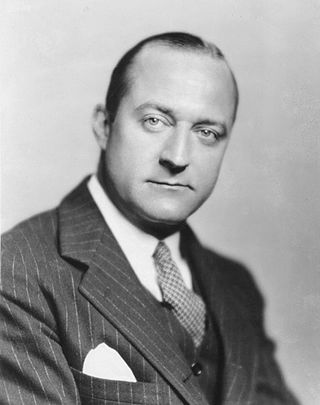
Henry Stuart Hazlitt was an American journalist who wrote about business and economics for such publications as The Wall Street Journal, The Nation, The American Mercury, Newsweek, and The New York Times.

Hans-Hermann Hoppe is a German-American economist of the Austrian School, philosopher and political theorist. He is Professor Emeritus of Economics at the University of Nevada, Las Vegas (UNLV), Senior Fellow of the Ludwig von Mises Institute, and the founder and president of the Property and Freedom Society.
Ludwig von Mises Institute for Austrian Economics, or Mises Institute, is a libertarian nonprofit think tank headquartered in Auburn, Alabama, United States. It is named after the Austrian School economist Ludwig von Mises (1881–1973). It promotes heterodox Misesian economics and is known as a center of radical libertarian thought in the United States.
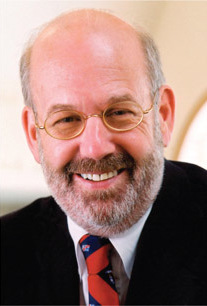
Llewellyn Harrison Rockwell Jr. is an American author, editor, and political consultant. A libertarian and a self-professed anarcho-capitalist, he founded and is the chairman of the Mises Institute, a non-profit dedicated to promoting the Austrian School of economics.

Man, Economy, and State: A treatise on economic principles is a 1962 book of Austrian School economics by Murray Rothbard.

Mark Thornton is an American economist of the Austrian School. He has written on the topic of prohibition of drugs, the economics of the American Civil War, and the "Skyscraper Index". He is a Senior Fellow with the Ludwig von Mises Institute in Alabama and a Research Fellow with the Independent Institute.
An Austrian Perspective on the History of Economic Thought is two-volume non-fiction work written by Murray N. Rothbard. Rothbard said he originally intended to write a "standard Adam Smith-to-the-present moderately sized book"; but expanded the scope of the project to include economists who preceded Smith and to comprise a multi-volume series. Rothbard completed only the first two volumes, Economic Thought Before Adam Smith and Classical Economics.
Ralph Raico was an American libertarian historian of European liberalism and a professor of history at Buffalo State College.
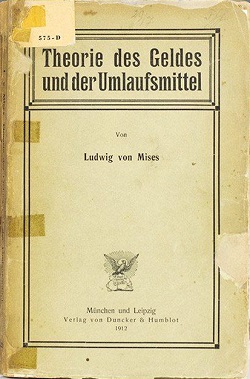
The Theory of Money and Credit is a 1912 economics book written by Ludwig von Mises, originally published in German as Theorie des Geldes und der Umlaufsmittel. In it Mises expounds on his theory of the origins of money through his regression theorem, which is based on logical argumentation. It is one of the foundational works of the Misesian branch of the Austrian School of economic thought.

Ludwig Heinrich Edler von Mises was an Austrian-American Austrian School economist, historian, logician, and sociologist. Mises wrote and lectured extensively on the societal contributions of classical liberalism and the power of consumers. He is best known for his work on praxeology studies comparing communism and capitalism.

Egalitarianism as a Revolt Against Nature and Other Essays is a 1974 book by economist Murray Rothbard.

The Betrayal of the American Right is a book by Murray Rothbard written in the early 1970s and published by the Ludwig von Mises Institute in 2007.
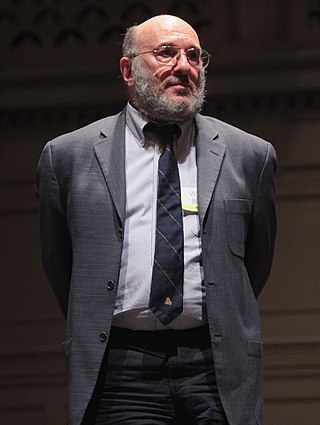
Walter Edward Block is an American Austrian School economist and anarcho-capitalist theorist. He currently holds the Harold E. Wirth Eminent Scholar Endowed Chair in Economics at the School of Business at Loyola University New Orleans, and is a senior fellow of the non-profit think-tank Ludwig von Mises Institute in Auburn, Alabama. He is best known for his 1976 book Defending the Undefendable, which takes contrarian positions in defending acts which are illegal or disreputable but Block argues are actually victimless crimes or benefit the public.
Percy L. Greaves Jr. was an American free-market economist, historian, and presidential candidate.

Floyd Arthur "Baldy" Harper was an American academic, economist and writer who was best known for founding the Institute for Humane Studies in 1961.
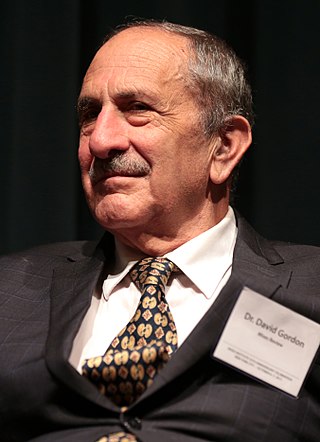
David Gordon is an American libertarian philosopher and intellectual historian influenced by Murray Rothbard's views of economics. He is a senior fellow of the Ludwig von Mises Institute, a libertarian think tank, and is editor of The Mises Review.
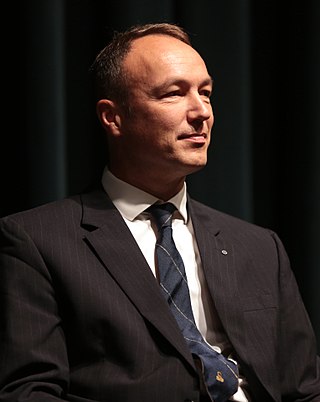
Jörg Guido Hülsmann is a German-born economist who studies issues related to money, banking, monetary policy, macroeconomics, and financial markets. Hülsmann is professor of economics at the University of Angers’ School of Law, Economics, and Management.














